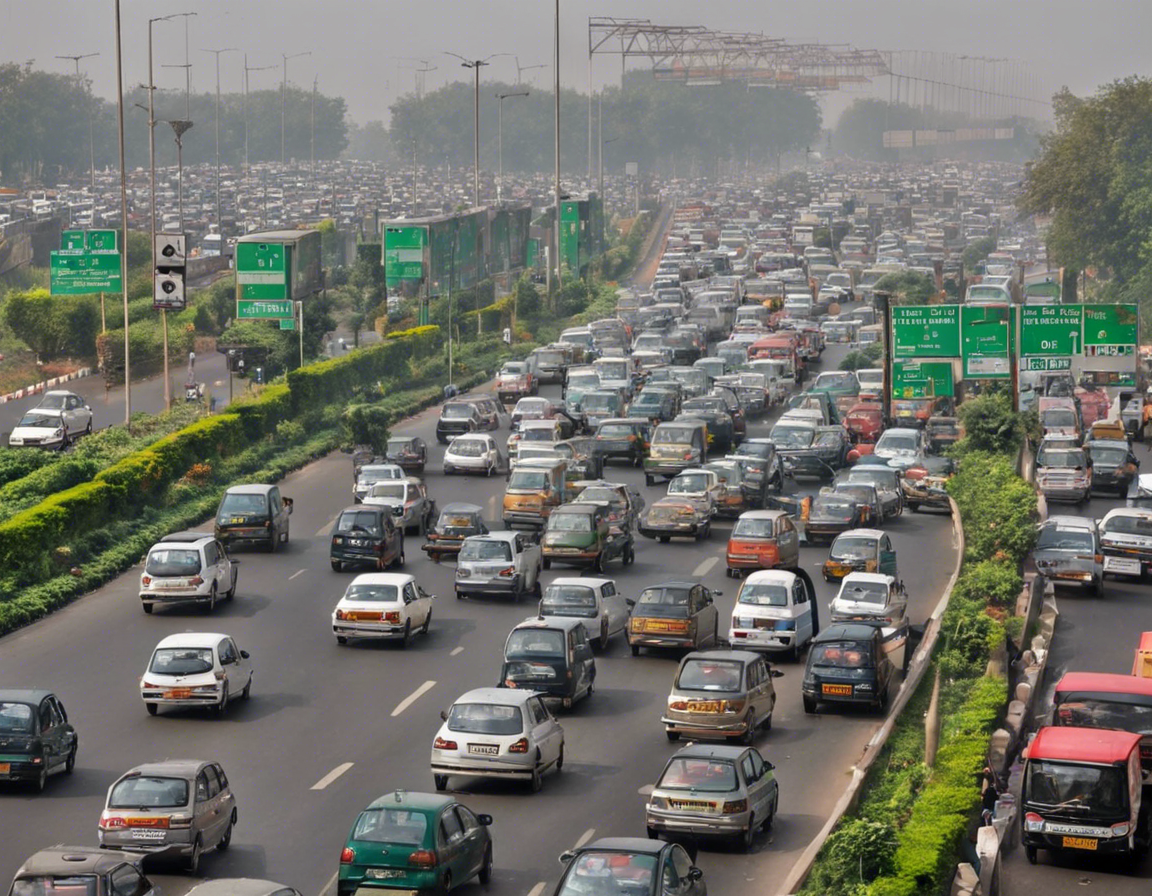The Delhi NCR region has been a focal point for discussions on environmental pollution and the steps that need to be taken to mitigate the harmful effects of vehicular emissions on air quality. One important measure that has been introduced to address this issue is the ban on BS4 vehicles in the region. Understanding the implications of this ban and its impact on vehicle owners and the environment is crucial. In this article, we will delve into the details of the Delhi NCR BS4 vehicles ban and what you need to know about it.
Understanding BS4 Vehicles
Before we delve into the ban itself, it is important to understand what BS4 vehicles are. Bharat Stage Emission Standards (BSES) are emission standards instituted by the government of India to regulate the output of air pollutants from internal combustion engine equipment, including motor vehicles. BS4, the fourth stage of these standards, was introduced in India in April 2017, with the aim of reducing harmful pollutants such as carbon monoxide, hydrocarbons, nitrogen oxides, and particulate matter from vehicles powered by petrol and diesel.
Rationale Behind the Ban
The decision to ban BS4 vehicles in Delhi NCR stems from the alarming levels of air pollution in the region. The toxic haze that blankets the capital and its surrounding areas has been linked to a variety of health issues, including respiratory problems, cardiovascular diseases, and even premature death. Vehicular emissions are a major contributor to this pollution, and transitioning to vehicles that adhere to stricter emission norms, such as BS6, is seen as a crucial step towards curbing pollution levels.
Implications for Vehicle Owners
If you own a BS4 vehicle in Delhi NCR, it is important to be aware of the implications of the ban. As per the directives issued by the National Green Tribunal (NGT), the registration of new BS4 vehicles is prohibited in the region. Additionally, the renewal of registration of existing BS4 vehicles post the stipulated date is also not allowed. This means that if you own a BS4 vehicle, you may have to consider switching to a BS6-compliant vehicle to ensure compliance with the regulations.
Impact on the Automotive Industry
The ban on BS4 vehicles in Delhi NCR has had a significant impact on the automotive industry. Manufacturers and dealers were given a timeline to sell their existing BS4 inventory before transitioning to BS6 vehicles. This transition required significant investments in upgrading technology and infrastructure to meet the stringent emission norms. While the initial phase posed challenges for the industry, it also paved the way for innovation and the development of cleaner, more fuel-efficient vehicles.
Environmental Benefits
One of the key benefits of phasing out BS4 vehicles in Delhi NCR is the improvement in air quality. BS6 vehicles emit significantly lower levels of pollutants compared to their BS4 counterparts, leading to a reduction in harmful emissions. This, in turn, contributes to a healthier environment and reduces the impact of vehicular pollution on public health. The ban on BS4 vehicles is part of a larger initiative to promote sustainable practices and reduce the carbon footprint of transportation in the region.
Frequently Asked Questions (FAQs)
-
What is the timeline for the ban on BS4 vehicles in Delhi NCR?
The ban on the registration of new BS4 vehicles in Delhi NCR came into effect on a specified date. Existing BS4 vehicles are not allowed to renew their registration post this date. -
Can I upgrade my BS4 vehicle to comply with BS6 norms?
While some modifications may be possible to reduce emissions, the cost and feasibility of such upgrades depend on the vehicle model and manufacturer specifications. -
What are the penalties for owning or driving a BS4 vehicle in Delhi NCR post the ban?
Violating the ban on BS4 vehicles in Delhi NCR can result in fines and penalties imposed by the authorities as per the relevant regulations. -
Are electric vehicles exempt from the BS4 vehicles ban in Delhi NCR?
Electric vehicles, which emit zero tailpipe emissions, are not subject to the ban on BS4 vehicles and are encouraged as an environmentally friendly alternative. -
How can I dispose of my BS4 vehicle in an environmentally responsible manner?
Vehicle owners can explore options for scrappage programs or certified vehicle dismantlers to properly dispose of their BS4 vehicles and recycle reusable parts.
In conclusion, the ban on BS4 vehicles in Delhi NCR underscores the importance of sustainable transportation and the role of stricter emission norms in combating air pollution. By transitioning to cleaner, more environmentally friendly vehicles, we can contribute to a greener future and improve the quality of life in the region. Stay informed about the regulations pertaining to BS4 vehicles and consider eco-friendly alternatives to reduce your carbon footprint and protect the environment.
